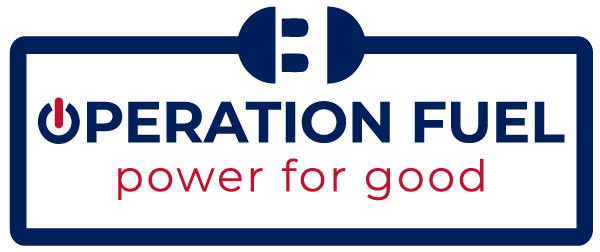Testimony from Operation Fuel Policy & Public Affairs Director Gannon Long, March 1, 2022.
Chairs Lopes and Williams, Ranking Members Polletta and Cicarella, and members of the Housing Committee,
Thank you for considering Operation Fuel’s testimony in support of Governor’s Bill 5041, AAC Home Energy Affordability for Home Renters.
Operation Fuel is a statewide nonprofit providing utility and energy assistance to low- and moderate-income CT residents. If you or your constituents are experiencing energy insecurity, we ask
you to visit www.operationfuel.org/gethelp to apply for bill assistance.
Operation Fuel serves clients in every legislative district of the state who struggle to keep up with rising electricity, heat, and water costs in our state. We also engage in energy efficiency policy,
through the Energy Efficiency Board, and by partnering with CT Green Building Council, Neighborhood Housing Services, and the CT Green Bank. We held a successful energy efficiency and water efficiency conference in October 2021, bringing together practitioners, advocates, and policy makers, to learn about and promote energy efficiency efforts in CT. Our new program, Better Homes & Buildings, connects homeowners to hazard remediation, weatherization, and efficiency services and incentives that individual clients struggle to access on their own. Operation Fuel was also a participant in PURA’s Energy Affordability Docket 17-12-03RE01, addressing hardship protections for low-income ratepayers, as this is a core issue for our clients. Operation Fuel is on the Low-Income Energy Advisory Board, which develops the state’s LIHEAP spending plan each year. We contributed to the Green Bank and VEIC’s 2020 report “Mapping Household Energy & Transportation Affordability in CT,” which outlines unaffordable transportation, housing, and energy costs throughout the state of CT. In particular low-income census tracts, energy costs are as high as 20% of residents’ incomes, compared to 6% that is the standard budgeting. In one community in Bridgeport, we found that the combined costs of these 3 basic needs amounts to 68% of median income; the ideal limit would be 45%. In our experience, these costs have only increased since the study was published, as the pandemic has exacerbated the income inequality
that CT is most famous for.
As a state, we have a lot of work to do to bring down energy burden for our residents, especially the most vulnerable. There are a series of legislative, regulatory, and market forces that continue
increasing CT residents’ energy costs. Operation Fuel does not see one quick solution or gesture that will solve this multi-pronged challenge. But, we can take specific action that begins rebalancing the burdens, and Governor’s Bill 5041 does that.
AAC Home Energy Affordability for Home Renters would require property owners to disclose the energy rating of a dwelling when listing for rent. For consumers, understanding energy costs at a
building before they agree to rent would protect tenants from committing to a housing situation and costs that they can’t afford. This is a basic level of consumer protection that we think is needed to guide consumers and incentivize landlords to invest in weatherization and efficient energy measures that will reduce energy consumption and cost, while also reducing greenhouse gas emissions from the home. Increasingly, research shows that fossil fuel emissions inside the home, such as methane from gas stoves; and moisture from leaks that causes mold, as two examples, cause health impacts for those exposed.
Years ago, it was common for those advertising rental units to offer “heat and hot water included.” Today, this is highly unusual when renting an apartment in CT. Depending on the heat source
– oil, gas, electricity, and propane are all expensive energy choices that the tenant has no control over – this can add hundreds of dollars to a person’s rent each month. Most tenants focus on location and explicit monthly rent costs when deciding where to live. Disclosing energy costs up front would help consumers to choose homes that truly suit their budgets. The current system passes energy costs to the renter, who is the person without the agency or resources to seal the building envelope or replace the oil furnace with a heat pump. This bill would provide incentives for landlords to make these improvements and provide a better quality of living for renters in our state.
As Operation Fuel and other stakeholders continue studying energy burden as it evolves in CT, we are encouraged to see that the bill focuses on the areas of highest need, specifically census tracts
where energy burden is highest, to phase in. In contrast to an “unfunded mandate” that municipalities rightly and frequently complain about, we applaud Section 1(e) which would enable municipalities to fine building owners that didn’t comply. This revenue could be directed toward housing inspection services that are especially lacking in cities like Hartford. Leaders of “distressed municipalities” know their communities better than the state; they should be able to more quickly identify and work with property owners who have the highest energy cost buildings.
The committee members may be familiar with the Energize CT website, which helps consumers estimate their energy costs and use by inputting the size and permeability of the home, fuel source,
preferred temperature, and other data. These data are not as precise as HERS scores but are a good tool to start with. Additionally, our partners at Green Building Council note that there is a very small number of CT firms that provide energy score services today. We encourage the committee to work with DEEP, the Energy Efficiency Board, and other legislative leaders to invest in our energy efficiency workforce. These are good-paying jobs that must be done right here in CT. We note the bipartisan support for workforce investment in our state, and encourage the inclusion of energy efficiency as a key industry that will lower costs, reduce emissions, and create wealth in our state.
In conclusion, Operation Fuel asks you to support GB 5041. Thank you again for your consideration.
